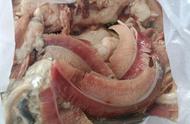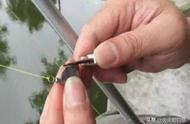It's funny because cats don't wear diapers, yeah.
很有趣,因为猫不穿尿布,是的。
Hey, everyone. I'm Alex.
大家好。我是艾利克斯。
Thanks for clicking, and welcome to this lesson on " 5 Types of Jokes" .
感谢您的收看,欢迎来到“5种类型笑话”课堂。
So, specifically we're going to look at five types of English jokes that often play with word meanings.
所以,准确来说,我们要看五种英语笑话,这些笑话经常是拿词义来制造笑点。
Now, if you're learning a language, learning jokes in that language is usually, like, one of the final barriers you have to punch through before you can claim to be, like, a full mastered speaker person thing in that language.
现在,如果你正在学习一种语言,那么用这种语言,来学习笑话,通常就是你必须冲破的最后一道障碍之一,在你成为,比如,可以自称语言大师之前。
So, today let's see if we can break through that barrier for you and with you so that you can learn five different styles of jokes in English.
所以,今天我们看看,是否可以同你一起,为你突破这个障碍,这样你就可以学习到五种不同风格的英语笑话。
Now, I'm not saying these are the only types of jokes.
那么,我不是说只有这些笑话种类。
Okay?
好吗?
There are tons and tons and tons and tons of joke types in every language, but I'm going to look at five of the more common ones today.
每种语言都有成千和上万的笑话种类,但我今天要看的是五个比较常见的笑话类型。
So, let's not waste any more time, and. . .
所以,我们废话少说,而且……
Ready for it?
准备好了吗?
Going to start with number one.
从第一个开始。
All right.
好的。
What's the difference between X and Y?
X和Y有什么区别?
A very common joke type.
(这是)一个非常常见的笑话公式。
So, for example: What's the difference between mashed potatoes and pea soup?
因此,例如:土豆泥和豌豆汤有什么区别?
You can mash potatoes, but you can't pee soup.
你可以捣烂土豆,但你不能‘往汤里小便’。
Did you like it?
喜欢这个笑话么?
I liked it.
我喜欢。
I think it's really good.
我认为很不错。
If you don't know the meaning of this joke, because you know, you're a non-native speaker, " pea" is a type of little vegetable. . .
如果你不知道这个笑话的含义,因为你知道的,你是一个非英语为母语的人,“豌豆”是一种小颗粒蔬菜……
Bean?
是豆子吗?
Is it a bean?
是一个豆子吗?
A lentil?
扁豆?
Something.
某种东西。
Anyway, something you can make soup with.
无论如何,(豌豆)是你可以做汤的东西。
And mashed potatoes, so you can mash potatoes but you can't pee. . .
捣烂的土豆泥,所以你可以捣烂土豆,但你不能“小便”……【注:pee(小解)单词发音和pea(豌豆)发音相同)】
The other meaning of " pee" in this situation.
在这种情况下“pee”就有了另一个含义。
Number two.
第二种笑话。
Okay, joke type number two is: What does X have in common with Y?
好的,笑话类型二是:X与Y有什么共同之处?
So, for example: What does a banana have in common with a million dollars?
所以,例如:香蕉与一百万美元有什么共同之处?
They both have appeal (a peel).
他们都有appeal(a peel)。
Huh?
咦?
It's pretty good?
这个很不错?
Not bad?
不错?
Okay.
好的。
Let me explain it for you so you can, like, want to hurt me some more.
让我给你解释一下,这样你就,比如说,更想打我了。
So, a banana, peel.
所以,一根香蕉,香蕉皮。
And if something has appeal it means that it is attractive, like: " Hmm, I want a million dollars."
如果某物has appeal,这意味着它很有吸引力,譬如:“嗯,我想要一百万美元。”
You get it now?
你现在明白了吗?【注:a peel和appeal发音相同】
Let's just. . .
让我们来……
Let's just move on to number three.
我们看第三种笑话。
Okay, next: " What do you call a/an. . . ? " jokes.
好的,接下来是:“你怎么称呼一个......?”的笑话。
So, for example: What do you call a computer that sings?
因而,举个例子:你怎么称呼会唱歌的电脑?
A Dell (Adele).
一台戴尔电脑。
Yeah, I like it.
是的,我喜欢这个笑话。
I like it.
我喜欢。
I think you like this one, too.
我想你也喜欢这个。
Smiled just a bit, right?
笑了一下,对吧?
If you don't know, Dell is a computer brand and Adele is a famous singer in the 2010s to 2012 period and maybe beyond.
如果你不知道的话,戴尔(Dell)是一个电脑品牌,阿黛尔(Adele)是2010年到2012年期间的知名歌手,或许还会继续火……
Who knows?
谁知道?
So let's just continue with number four.
所以,让我们继续看第四个种类。
So, next we have the " Why? " joke.
那么,接下来,是“为什么?”的玩笑。
So: " Why did" , " Why do" , " Why does" , " Why is" , " Why was" , " Why were" .
所以:“为什么……”,“为什么……”,“为什么……”,“为什么……”,“为什么……”,“为什么……”。
For example: Why was the math book sad?
例如:为什么数学书很难过?
Because it had too many problems.
因为它有太多的问题。
Yeah, that's the reaction.
是的,这个反应就对了。
That's what I'm looking for.
这就是我要的反应。
That's what I want.
这就是我想要的。
Okay, if you don't get this joke, math books have questions you have to answer, they have problems you have to figure out.
好吧,如果你没有听懂笑点,数学书中有你必须回答的问题,他们有问题,你必须弄清楚。
They're just very emotional, emotional books.
他们只是非常情绪化的,有情感的书籍。
Too many problems.
有太多问题(所以难过)。
Okay?
好的?
Whew.
呼。
You didn't like that one?
你不喜欢那个笑话?
Well, let's try for the last one, shall we?
那么,让我们试试最后一个,怎样?
Number five.
五号类型。
Next and finally: Knock, knock jokes.
下一个,最后一个:“敲敲”笑话。
You didn't think I was going to do this video without talking about knock, knock jokes did you?
你不会认为我会拍这个视频而不谈论“敲敲”笑话的,对不对?
So, the general structure of a knock, knock joke goes like this: " Knock, knock."
所以,一个“敲敲”笑话的总体结构是这样的:“敲敲”。
And you say: " Who's there? "
你说:“是谁?”
And in this case I'll say: " Lettuce."
在这种情况下,我会说:“生菜。”
And you say: " Lettuce who? "
你说:“哪位生菜?”
And I say: " Hey. Let us in. It's cold out here."
我说:“嘿,让我们进来吧,外面很冷。”
You're smiling, I can see it.
你在微笑,我可以看到。
I can feel it.
我能感觉到它。
Okay.
好的。
So, if you don't know, you can probably hear why this is funny.
所以,如果你不知道为什么好笑,你可能会听一听为什么这个笑话很有趣。
" Lettuce" sounds like " Let us" , so: " Let us in. It's cold out here."
“生菜(Lettuce)”听起来很像“让我们(Let us)”,所以:“Lettuce in,这里很冷。”
Did I just touch the mic?
我刚刚碰过麦克风吗?
I'm not sure.
我不确定。
Ah, it doesn't matter really, right, guys?
啊,其实没什么事儿,对吧,大家?
All right, so let's review the jokes and we'll finish this for you.
好吧,让我们来回顾一下这些笑话,为你的讲解就结束了。
All right.
好的。
That's it.
就这样。
All five jokes.
所有五个笑话。
But we're going to review them one more time to maximize the pain.
但我们会再次回顾下它们,来最大化这种“笑的肚子痛”的感觉。
Now, you can tell these to your friends, make them laugh, make them cry, or both.
而且,你可以把笑话讲给朋友们听,逗他们笑,让他们哭,或者都行。
So let's go from the top.
所以,让我们从顶部开始。
What's the difference between mashed potatoes and pea soup?
土豆泥和豌豆汤有什么区别?
You can mash potatoes, but you can't pee soup.
你可以捣烂土豆,但你不能“在汤里小便”。
Yeah.
是的。
Number two: What does a banana have in common with a million dollars?
第二个:香蕉与一百万美元有什么共同之处?
They both have appeal (a peel).
他们都有吸引力(皮)。
All right?
好吧?
Number three: What do you call a computer that sings?
第三个:你怎么称呼一台会唱歌的电脑?
A Dell (Adele).
戴尔(Adele)。
Yes, yes.
是的,是的。
And number four: Why was the math book sad?
第四个:为什么数学书很难过?
Because it had too many problems.
因为它有太多的问题。
And finally, I need your help on this one, so you say the parts that you're supposed to say.
最后一个,我需要你的帮助,所以,你说你该说的部分(有下划线的部分)。
-" Knock, knock." -" Who's there? "
——“敲,敲。”——“是谁?”
-" Lettuce." -" Lettuce who? "
——“生菜。”——“哪位生菜?”
-" Let us in, it's cold out here."
“Lettuce in(生菜要进),外面很冷。”
Yeah.
好的。
Beautiful.
不错。
Okay, guys, if you enjoyed these jokes and you want to memorize them and test your understanding of them, as always you can check out the quiz on www. engvid. com. engvid. COM.
好的,小伙伴们,如果你喜欢这些笑话,想记住它们,并测试你对它们的理解,像往常一样,可以在engVid官网里(engvid. com)查看测验。
While you're on engVid you can also check out my other lessons on dad jokes and five common types of jokes. . .
当你在看engVid的时候,你也可以看看我的其他课程,关于当爸笑话和五种常见的笑话……
Not types of jokes.
不是你现在看的这视频。
I have another jokes video.
我有制作另一个笑话主题的视频。
You'll see it attached to the video.
你会看到它被附在本视频后(注:在【Engvid-Alex-课程合辑】中可看)。
And if you have your own jokes and you want to make me laugh, I love terrible jokes so please just leave them in the comments and, you know, make me laugh.
如果你自己有笑话,你想逗我笑,我就喜欢很糟糕的笑话,所以请留下评论,逗我笑。
Make yourselves laugh.
逗自己笑吧。
Make everybody else who's watching this video laugh right now.
让正在观看本视频的其他人都大笑。
And after you do that, don't forget: Check me out of Facebook and Twitter.
之后,不要忘记:在Facebook和Twitter中搜索我。
Click the subscribe link wherever it is in this video.
点击本视频的订阅。
Until next time, thanks for clicking.
下次再见,感谢您的收看。















